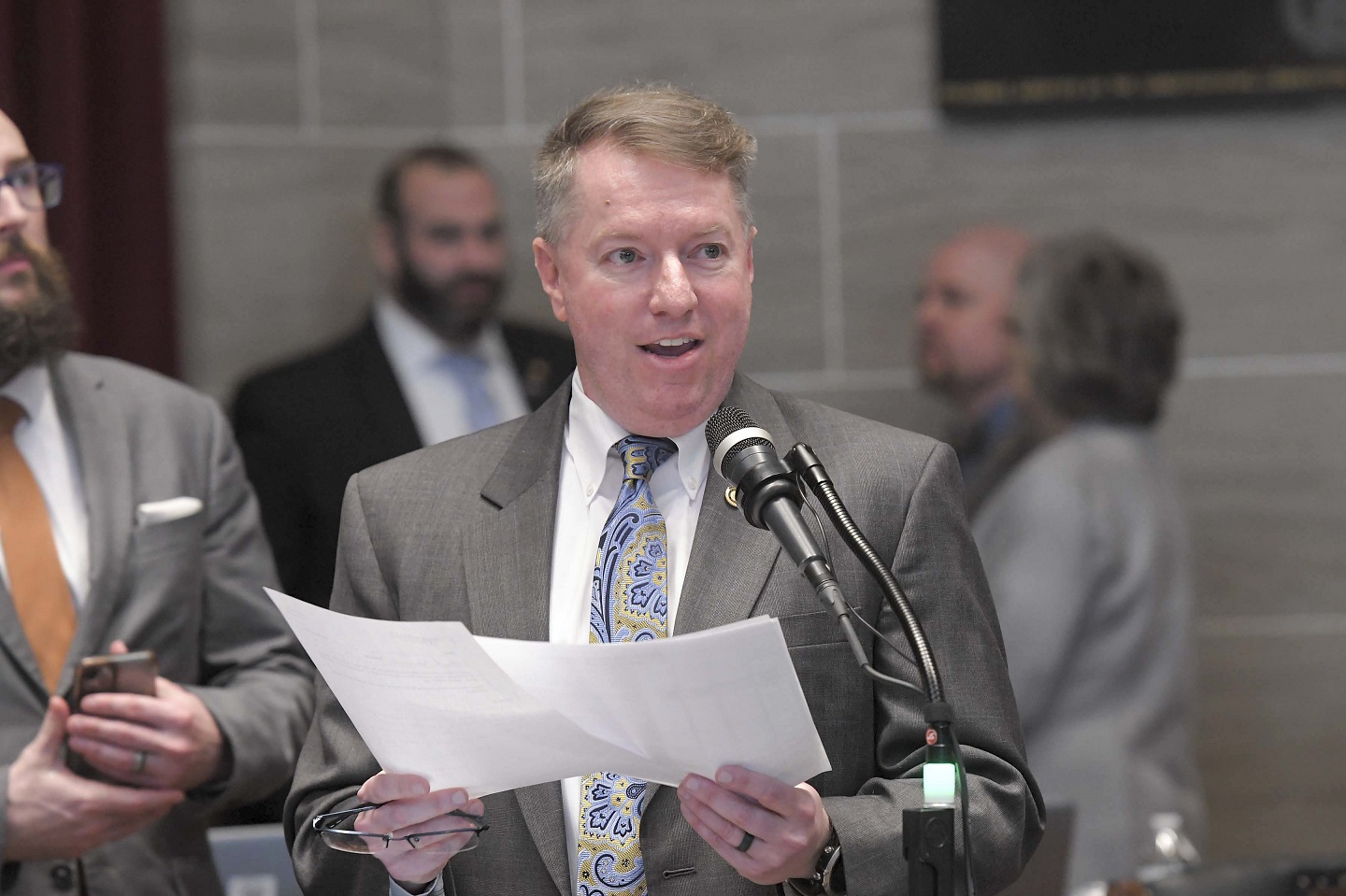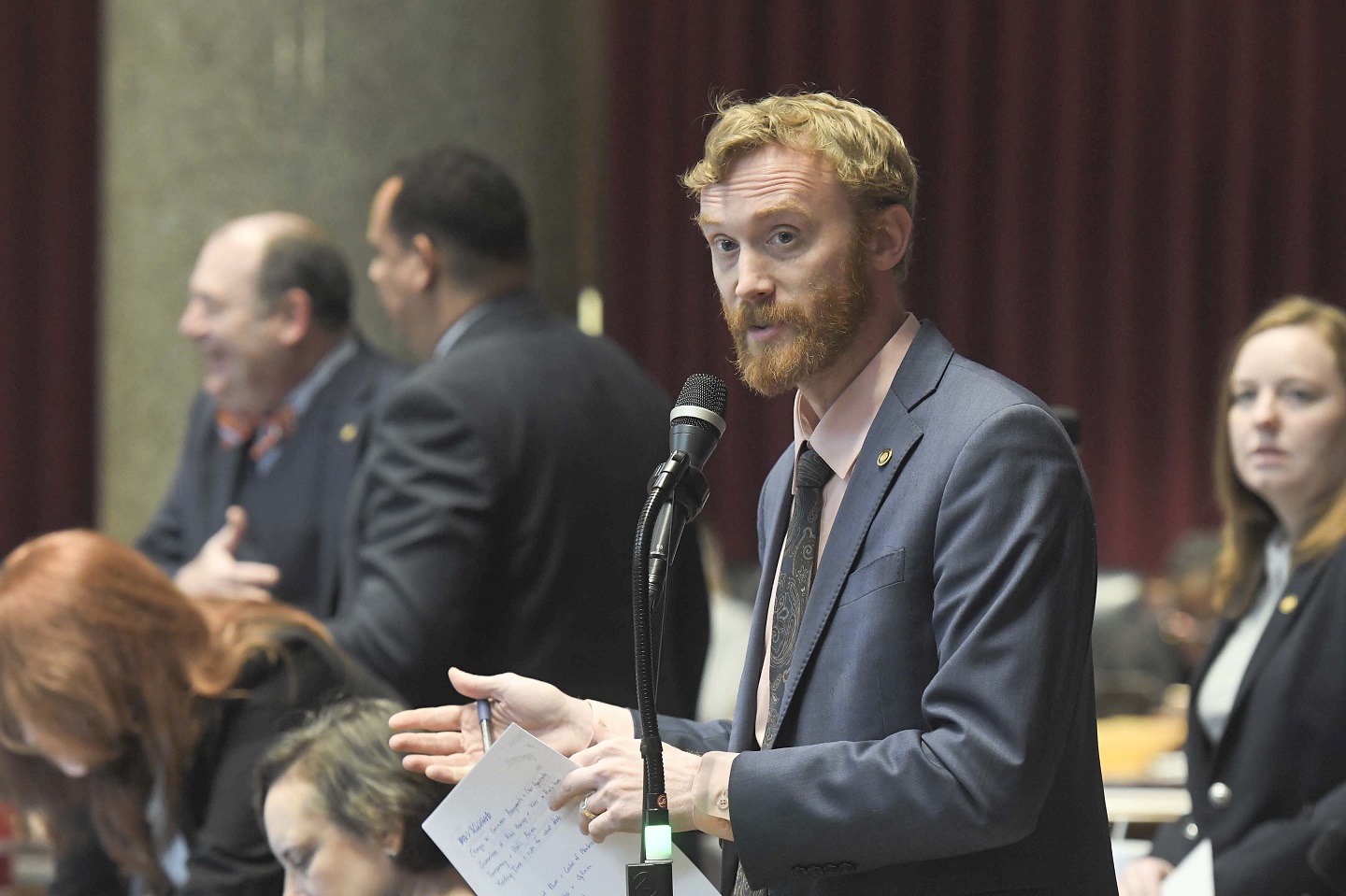Many Missourians will be pleased to know that expired temporary license tags on vehicles could soon become a thing of the past, under one of the bills signed into law earlier this month.

Those tags have, for some, been a source of anger and fodder for jokes. Entire social media accounts have been dedicated to posting pictures of vehicles with tags that expired months or even years ago, and some openly ridicule law enforcement for not acting against drivers with outdated tags. For others the issue has been a source of anxiety as they felt the scrutiny of peers and law enforcement while driving with them.
“It’s embarrassing,” said Representative Michael O’Donnell (R-St. Louis) of the system now in place in Missouri – the system that would be changed as part of Senate Bill 398. “This [change] is long overdue … we’re only one of like three or four states that’s still doing it this way.”
The “way” to which O’Donnell refers is the collection of sales taxes on vehicle purchases by the Department of Revenue, after the sale.
“We had this weird situation in Missouri where people would go buy a car and unlike anything else you buy you don’t pay the sales tax when you buy it,” explained Representative Peter Merideth (D-St. Louis). “People get the best car they think they can afford. Next thing they know they go to get their plates for it, they find out they owe $4,000 or $5,000, or even $1,000 or $500 if they got a cheap, used car, it’s a lot of money at once in order to get their plates, and they go, ‘Well I can’t afford that.’”
O’Donnell was the House handler of the proposal that became part of SB 398 that will require auto dealers to collect sales tax at the time of a vehicle purchase.
While having dealers begin collecting taxes at the time of purchase sounds like a simple change, Merideth said it took several years for infrastructural changes that will allow it.
“We’ve been saying for a long time that that’s the solution,” said Merideth, “and then the Department of Revenue would tell us, ‘We don’t have a technical system that can do that.’ What they told us is their computer systems that they were using were designed in the ‘80s when we barely had computers and hadn’t been updated.”

A series of legislative and budgetary changes – some of which, notes Merideth, did not have the bipartisan support that this portion of SB 398 had – have allowed for this bill to advance and O’Donnell describes it as the last step in a long process. The new law becomes effective August 28but it allows several months for changes to Department of Revenue systems. O’Donnell said it could be 12 to 24 months before those buying vehicles experience the new system.
Many legislators in recent years have said that this issue was among those about which they most often heard complaints from constituents, but they often learned that increasing enforcement against those with expired tags was only going to hurt those who were already financially struggling and would not end the problem.
Merideth told House Communications, “This temp tag issue is the thing I have heard maybe second most from constituents about, second only to gun violence, of anything in my district. It shocked me how upset people are about it, but I get it. It feels like we have a situation where all these people are running around that aren’t paying their fair share of the taxes that the rest of us are paying.”
“I’ve heard a lot of people say, ‘Well don’t buy the car if you can’t pay the taxes,’” said O’Donnell, but he, like Merideth and others, quickly learned that it wasn’t always that simple. He said a series of reports by a television reporter illustrated the depth of the problem. She talked to a number of Missourians who had expired temporary tags.
“A lot of people had hardship problems,” O’Donnell learned. “That was a lot of money to come up with, and she would ask the question, ‘If you were able to roll it into your financing and just pay $30 extra each month would that have been more doable,’ and people were like, ‘Oh my gosh, that would’ve been so much easier and so much less stressful.’”
O’Donnell also learned how anxious many of those drivers were because of their expired tags. “It wasn’t like it’s no big deal, nobody cares. They were always nervous that they were going to get pulled over and get questioned about it … [this legislation] will reduce that stress of thinking that the eyes of the world are upon you because you’ve got this temp tag.”
The end result was a much-needed change that lawmakers on both sides of the political aisle will be glad to talk about to their constituents.
Said Merideth, “I’m tired of seeing the expired temp tags and I’m tired of, honestly, hearing from so many people about the expired temp tags. It’s a frustrating problem and honestly I’m glad we’re finally going to collecting the revenue that we need to have and we’re going to do it in a way that people are going to know what they’re getting into when they buy their car.”
O’Donnell said four or five years from now there might still be some stragglers out there, but most expired tags should disappear over the next couple of years.
Production note: due to a technical issue, the audio from Rep. Merideth was not of good quality. Those who wish to access it may contact House Communications.

